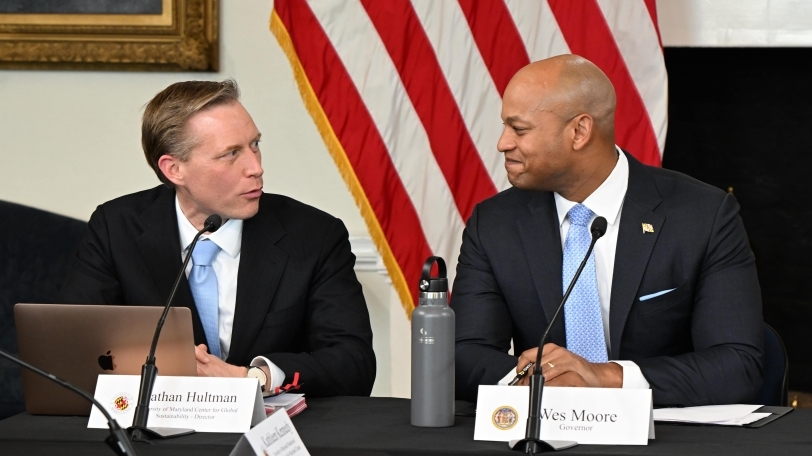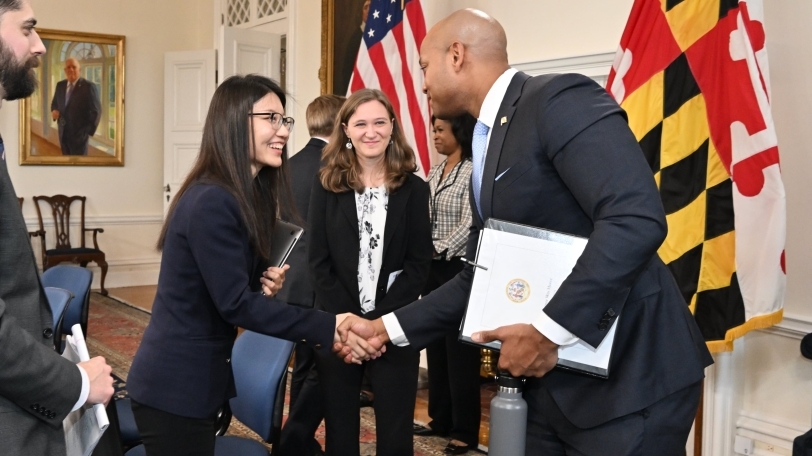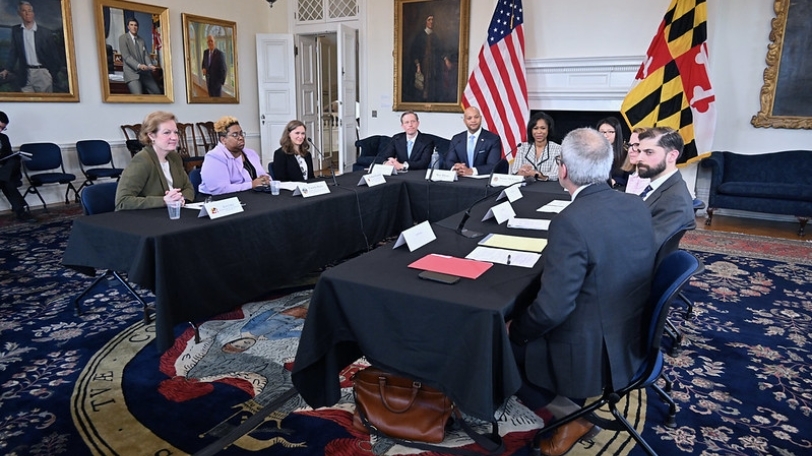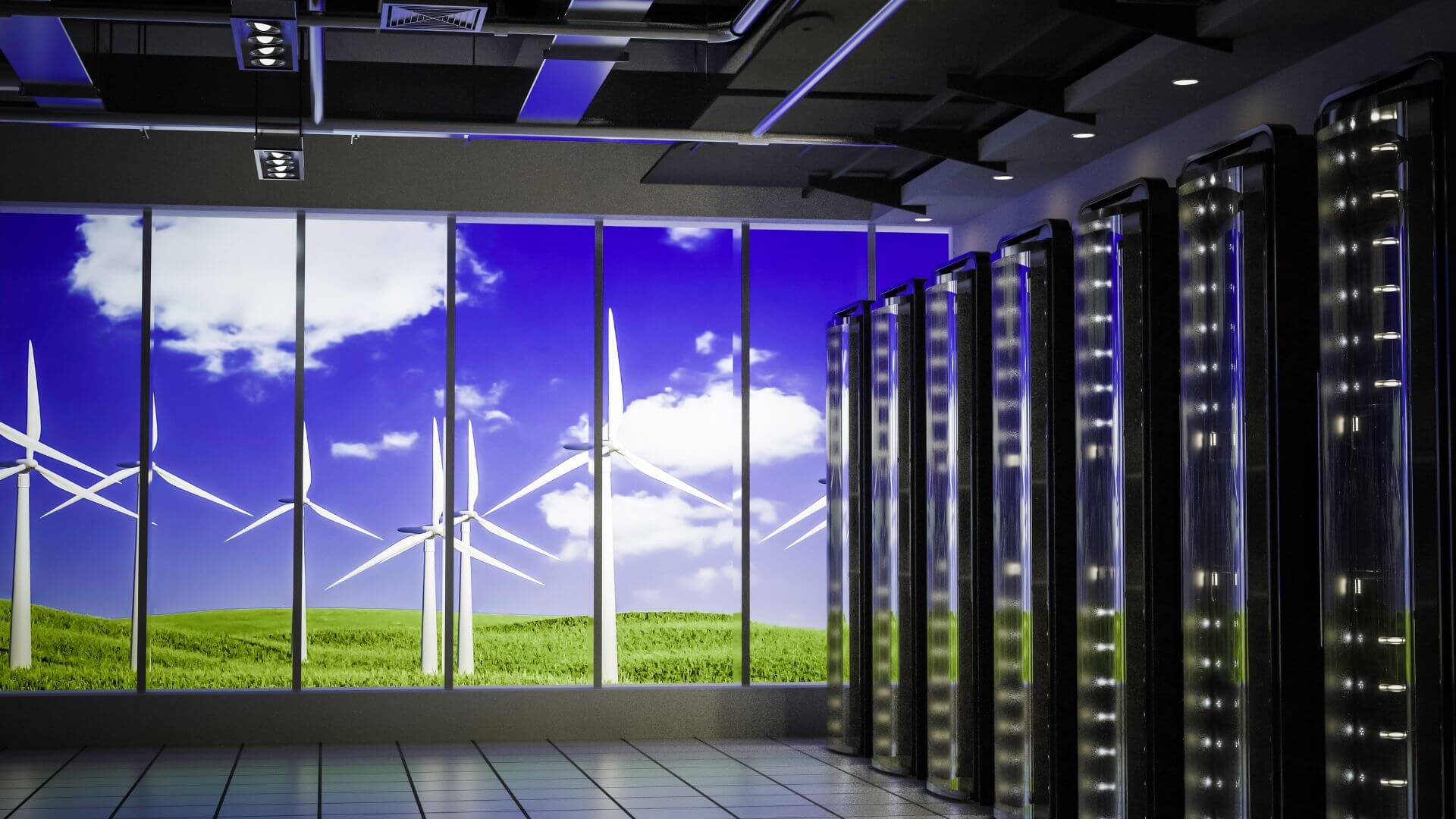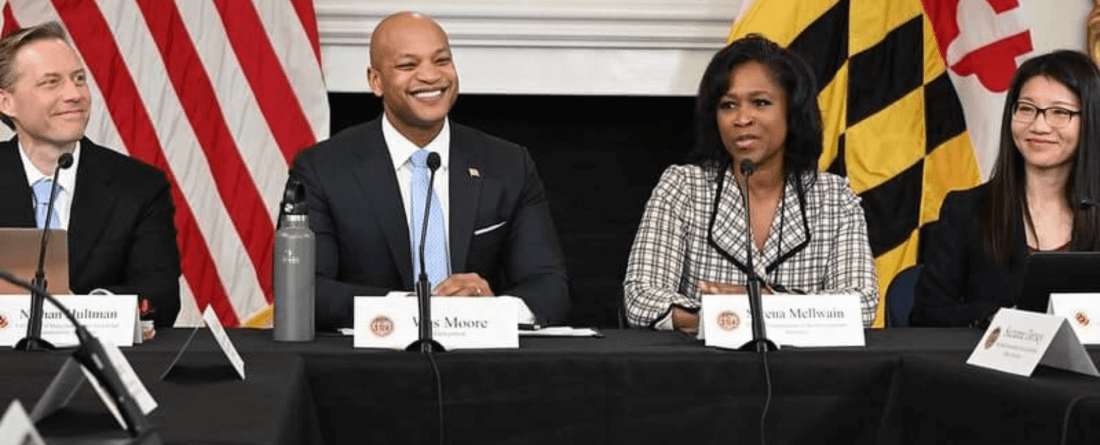
Gov. Moore announces new CGS-Maryland Department of Environment partnership to model the state’s pathway toward its ambitious climate goals
Diverse team of experts and policymakers to create a comprehensive plan to achieve 60% emissions reductions by 2031, net-zero emissions economy by 2045
Maryland Governor Wes Moore announced today a new partnership between the Center for Global Sustainability (CGS) at the University of Maryland School of Public Policy and the Maryland Department of Environment (MDE) to model and reveal a feasible, implementable pathway to achieve Maryland’s ambitious climate goals.
Today at the Maryland State House, CGS Director Nate Hultman, Research Director Ryna Cui, and Post-Doctoral Associate Kathleen Kennedy joined MDE Secretary Serena Mcllwain and additional analytical experts from MDE, community leaders, and policymakers to discuss this partnership and how this partnership can achieve an all-of-society, comprehensive plan to achieve 60% emissions reductions by 2031 and net-zero emissions economy by 2045 in Maryland.
"The State has set big goals. We’re aiming for a 60% reduction in emissions by 2031, and a net-zero emissions economy by 2025. These are challenging—but by working together we can achieve them," said CGS Director Nate Hultman during today's roundtable.
CGS experts will work directly with MDE and other stakeholders to understand the current climate trajectory based on state and local policies, federal action, and market forces. This analysis will identify new and feasible state policies to help Maryland reduce the necessary emissions while improving economic, public, and environmental health for all.
"We aim to analyze and understand the broad scope of potential emission reductions across the entire Maryland economy so that we can provide recommendations on the best possible policies and actions to meet the 2031 and 2045 goals,” says Dr. Kathleen Kennedy, lead for the CGS team on this project.
The CGS team in addition to Kennedy, Hultman, and Cui, includes CGS Research Associate Alicia Zhao, Pacific Northwest National Laboratory (PNNL) Joint Appointees Haewon McJeon and Steve Smith, CGS Senior Manager of Strategic Engagement Shannon Kennedy, and several CGS/School of Public Policy graduate students and researchers.
Learn more from the full release below. Watch the live stream here.
----
PHOTO RELEASE: Governor Moore Announces New Partnership Between Maryland Department of Environment and University of Maryland Center for Global Sustainability to Model Maryland’s Climate Goals Pathway
ANNAPOLIS, MD—Governor Wes Moore today announced a new partnership between the Maryland Department of the Environment and the University of Maryland Center for Global Sustainability to model Maryland’s pathway toward ambitious climate goals. The announcement came during the governor’s visit to the Eastern Shore at an environment and sustainability event in Easton.
“This new partnership is key not only to achieving our emissions reduction goals, but also to producing economic benefits and job growth across our state,” said Governor Wes Moore. “Maryland is leading the way and showing that we do not have to choose between economic growth and environmental sustainability.”
Maryland’s Climate Solutions Now Act of 2022 calls for 60% in emissions reductions by 2031—the most ambitious target in the country. The act requires the state to reduce greenhouse gas emissions by setting more aggressive state goals; requires electric companies to increase gross energy savings; develops energy efficiency and emissions reduction requirements for certain buildings; establishes zero-emission vehicle requirements in the state fleet; and establishes an electric school bus pilot program.
The act also set Maryland’s first-ever net-zero emissions goal. By 2045, annual statewide greenhouse gas emissions must be balanced with removals of greenhouse gasses from the atmosphere, such as from carbon sequestration in trees and soils.
“These ambitious plans must not only include solutions to achieve our goals but must also lay a foundation for just and equitable implementation,” said Maryland Department of the Environment Acting Secretary Serena McIlwain. “Marylanders’ voices are critical in helping the plan deliver emissions reductions and realize economic benefits across the state.”
The analysis and framework will outline the emissions reductions potential from multiple sectors and cover all harmful greenhouse gas emissions—including methane and hydrofluorocarbons. Critically, the framework will set the stage for actors at all levels to engage in thoughtful climate leadership to improve Maryland’s air and environment and help transition the most vulnerable communities to clean energy.
“Our experts will work directly with our state partners and other stakeholders to understand the current climate trajectory based on state and local policies, federal action, and market forces,” said Director of the Center for Global Sustainability Nate Hultman. “Our analysis will identify new and feasible state policies to help reduce the necessary emissions while improving economic, public, and environmental health for all.”
The Maryland Department of the Environment will issue a report and the framework will be open for public comment this summer. Following the open comment period, a final policy framework and plan will be delivered at the end of 2023.

